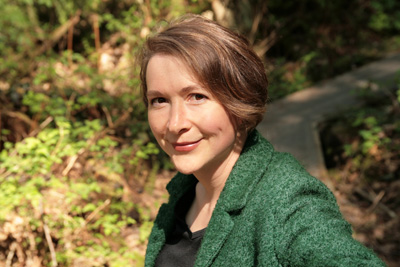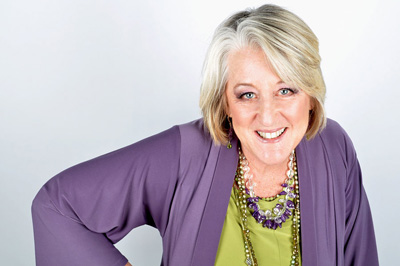I'm Listening :
Linda Rogers in Conversation with Rachel Rose
 Malahat advisory board member Linda Rogers talks with the judge for our 2013 Open Season Award for poetry, Rachel Rose.
Malahat advisory board member Linda Rogers talks with the judge for our 2013 Open Season Award for poetry, Rachel Rose.With only two books of poetry published, you have gathered very positive affirmations with the A. M. Klein Award and nominations for the Lowther and Lampert prizes. Do you think critical notice is essential to emerging poets developing audiences or do they muddy the landscape, making prizes the desiderata and contributing to a culture of competition as opposed to a higher principle of art?
Prizes give great encouragement to writers, and especially for an emerging writer, this support is profound. And yet, there is the next book to write, and the writer finds herself once again alone, and also knowing that the next book will be judged according to the high expectations of the prize-winning work, which can be a heavy burden. There’s a wonderful TED talk by Elizabeth Gilbert, author of the wildly successful Eat, Pray, Love, about protecting the writer’s spirit from both excesses of failure and success. The other issue with awards and other forms of public recognition is who is not recognized. Gillian Jerome and a number of others have been doing tremendously important work in creating CWILA, Canadian Women in the Literary Arts [http://cwila.com/], to address some of the discrepancies in terms of representation of women’s writing, reviews by and about women, and also to respectfully invite dialogue on how cultural choices are made, how authors are rewarded or ignored, and how we can empower ourselves to champion exceptional writers who have been overlooked by writing the reviews, running the reading series, editing the anthologies, publishing the chapbooks, and doing whatever needs to be done to create the kind of community to which we wish to belong.
There are so many factions in poetry these days: the formalists, the modernists, the lyricists, the environmentalists, the the spokenword(ists)- so many "ists." Your own poetry appears to be sublimely polemic, a compassionate social agenda framed in music and imagery. That gives you a fairly broad platform. Are you drawn to documentary poetry or are you a generalist? How do you plan to approach the problem of choosing between trolls and troglodytes when it comes down to the final few, all of them worthy?
I love that you describe my poetry as “sublimely polemic.” Thank you. As a reader and writer I am staunchly anti-factionalist. I abhor being confined to a specific school or even a specific genre; I am fiercely omnivorous in my tastes, and intend to remain so. And yes, I do write to change the world.
Now, on to the question about human rights, which seem to be equally eroded in the worlds of radical Islam, former Communism and the Christian Fundamentalists in America. What role does poetry have in the assertion of fairness, what the late Utah Phillips called "the justice of moderate needs," in the face of indignities like the suppression of artists like Pussy Riot in Russia? Can poets still capture the attention of a world population numbed to oppression?
This month Iran banned women from many different university programs; this month, the U. S. revealed that 31 states allow men who have fathered children through rape full visitation rights. As a humanist, a recurring theme in my writing is to provoke, to draw attention to human rights, to show the ways in which we are connected. I refuse the confines of my own experience, my own borders; as a writer, I take the whole world into my arms (to the best of my limited and flawed ability). I do believe that humankind is engaged in a struggle in how we move through the world, and whether we will move toward compassion or toward brutality. Just as I resist belonging to a certain school or literary genre to the exclusion of all others, so too do I resist belonging to only one country or one system of belief. Far more interesting and important to be curious and connected as broadly as possible, even if the risk is getting it wrong, or partly wrong. Whether poets can capture the attention of a world numbed to oppression I am not sure. I am thinking of the poet Renee Saklikar, and her ongoing commitment to speak of the atrocities and the victims of Air India, an act of terrorism that most of us would prefer to call a tragedy, and then forget about entirely. But poets and writers are those who resist forgetting; they remember forever, and part of their job is to make the rest of the world uncomfortable, to make them pay attention, in the tradition of Blake, of Carolyn Forché, and Paul Celan. Another part of our job is to celebrate our interconnectedness, to comfort and delight and give succor, which is also a way of saying “Pay attention.” I’m thinking of Rumi, of Lorna Crozier, of William Carlos Williams, of the poems of the Bhagavad Gita, of Akiko Yosano.
Who are the poets you most admire and what will you be looking for in the representative poem you select to win the 2013 Open Season Award? Will you be seeking a poem that moves you or one that you think can change the world, or is that the same thing?
I don’t know if it’s useful for me to give a list of names of important poets—those above are such a small sample of the tremendous body of poetry that I consider vital and sustaining. What’s more important, for those who are considering submitting poems to this contest, is to know that I will read each poem with my full attention. I ask only this: that you send me the purest distillations of experience, imagination, philosophy and experimentation. Surprise me, delight me, wound me, astonish me. I’m listening.

Linda Rogers
* * * * * * * *
Check out the guidelines for our 2013 Open Season Awards.









